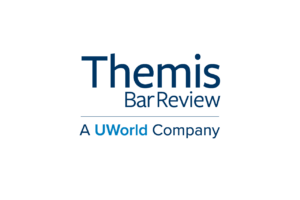The Playbook Strategy: Drafting Your Game Plan For Conference Success
Looking to shine at your next conference? This series is for you.

Ed. note: First in a series.
As the countdown to the big legal conference begins, the stakes are high, and the players are as sharp as their suits.

Raising The Bar in Bar Prep
You can almost hear the buzz of legal jargon in the air, like the distant roar of a sports stadium.
But instead of excitement, you’re feeling that familiar flutter of uncertainty — the fear of the unknown mingling with the anticipation of potential success.
It’s time to channel your inner coach and draft a playbook that will navigate you through the networking field.
After practicing at litigation consulting firms for over 20 years, where business development is an essential part of growth, I had the privilege of working with partners at some of the largest firms in NYC.
Sponsored

How Savvy Lawyers Build Their Law Firm Rate Sheet

Trust The Process: How To Build And Manage Workflows In Law Firms

Back To Basics: 6 Tech Tips Every Small Firm Needs To Hear

How To Build And Manage Your Law Firm Rate Sheet
A question that would come up over and over was what my day looked like and how I got my clients. To my amazement, they would often ask if they could take notes as I shared my strategies.
I helped them informally grow their practices, which led me to create Sage Ivy, a company dedicated to coaching attorneys, particularly partners, on practice development.
Over the years, I’ve learned that while law school teaches us to be great lawyers, it doesn’t teach us how to get and keep clients. I realized that most attorneys do not have a strategic method for client acquisition; often, it’s more about luck.
In this series, I’ve broken down what you should do before attending a conference.
Enter “The Playbook Strategy” — your secret weapon to transform those nervous jitters into a confident strut.
Sponsored

How To Build And Manage Your Law Firm Rate Sheet

Raising The Bar in Bar Prep
Think of this as your coach’s pep talk before the big game, where strategy meets swagger.
Crafting Your Offensive Strategy: Knowing the Field
Before you even lace up your cleats for the conference, it’s crucial to have a well-crafted offensive strategy. It’s about making calculated moves that set you up for success.
Reflecting on my early conference experiences, I recall a time when my preparation took an unexpected turn.
I had meticulously researched attendees and prepared questions, but upon arriving, I discovered a last-minute panel change introducing someone I hadn’t researched.
Unfazed, I used my pre-prepared questions as a springboard, adapting them on the fly.
The conversation that ensued not only provided valuable insights but also a lesson in adaptability.
It was a reminder that while preparation is key, the ability to improvise can turn an unforeseen situation into an opportunity for growth and learning.
So let’s talk about the research — your pre-game film study.
Identify the key players attending the conference. Who are the industry leaders, the rising stars, the Tom Bradys of tort law or the Serena Williamses of securities?
Know their background, recent achievements, and possible areas of common interest.
LinkedIn is a tool in your arsenal. Look for commonalities and create the open-ended questions that you are going to ask.
This information is like your playbook: The more detailed it is, the better prepared you are to engage.
Let’s break it down further!
Crafting Your Research Game Plan: Scouting the Key Players
1) Identify the Industry Leaders and Rising Stars: Use the conference’s attendee list, speaker lineup, or panelist details as your starting lineup. Look for big names in your field — the seasoned veterans known for their expertise, as well as the up-and-comers making waves.
2) Take a Deep Dive Into Backgrounds and Achievements: Utilize LinkedIn and other professional platforms to research these individuals. Look into their career history, recent publications, or notable achievements. If they’ve been in the news, won awards, or led significant projects, make a note of it — these are your talking points.
3) Seek Out Common Ground: While researching, look for any commonalities you share with these key players. Did you attend the same law school, work in similar legal areas, or share mutual connections? Common interests, even non-professional ones, can be great ice-breakers.
4) Craft Tailored Open-Ended Questions: Based on your research, develop questions that are open-ended and invite conversation. For instance, “I read your recent article on intellectual property challenges in tech. Could you share more insights on that?” These questions shouldn’t just show that you’ve done your homework; they should encourage a dialogue, not just a quick response.
5) Use LinkedIn as a Strategic Tool: Beyond research, LinkedIn can be used for initial soft introductions. Engage with their posts or articles by commenting thoughtfully to get on their radar. You can also send a brief, personalized connection request mentioning your mutual conference attendance as a conversation starter.
6) Building Your Playbook: Yes, an actual, physical playbook. Document your research and questions in a concise format — this is your personal playbook for the conference. Organize it by individual, including key details and potential conversation starters, so it’s easy to review before and during the conference.
Key Actions for Effective Research:
✔️ Review the conference’s attendee and speaker lists.
✔️ Conduct in-depth research on LinkedIn and other platforms.
✔️ Identify commonalities for potential conversation starters.
✔️ Develop open-ended, personalized questions.
✔️ Use LinkedIn for preliminary introductions and engagement.
With your playbook now brimming with meticulously researched information and personalized questions, you’re set to take the field at the conference with confidence.
But remember, the game of networking isn’t just about the plays you’ve planned; it’s about the agility to adapt in real-time.
In our next installment, we’ll dive into the crucial aspect of building your digital presence and laying the groundwork for those key face-to-face interactions.
Sejal Patel is the Founder of Sage Ivy, a New York-based consultancy specializing in empowering attorneys with innovative practice development strategies. With over 20 years of experience, Sejal applies her expertise in assisting clients to convert their relationships into revenue by applying individualized strategies to their networks and leveraging their unique styles authentically. Feel free to reach out at spatel@sageivyconsulting.com.







